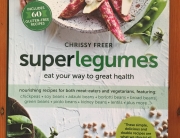 I have been eating hemp seeds for a while now and love their nutritional bang. The members of Community Detox are getting just as addicted as I am!! I add them to smoothies, make milk by soaking them, blending and straining and also put on my fruit for a protein hit.
I have been eating hemp seeds for a while now and love their nutritional bang. The members of Community Detox are getting just as addicted as I am!! I add them to smoothies, make milk by soaking them, blending and straining and also put on my fruit for a protein hit.
Hemp seed oil is also a wonderful addition to a salad dressing or add a drizzle over cooked vegetables. Although a little challenging to find, hempseeds and oil are well worth the effort.
Hemp kernels are produced by removing the outer shell of the hemp seed, with no other processing or additives. The kernels are raw and free of chemicals and artificial additives.
Hemp seed contains both Omega 3 and Omega 6 in an ideal ratio of 1:3 along with uniquely high levels of vitamin E, which protects and preserves the delicate oil from oxidation. Further, unlike marine Omega 3, hemp seed is free from dioxins, PCB and other contaminants, making it an ideal choice for pregnant women and children.
Why eat hemp kernels?
Hemp kernels contain a complete range of amino acids and are suitable for those who choose vegetarian or vegan diets. Because they are low in carbohydrate, they are also suitable for diabetics.
Hemp kernels can be eaten straight from the packet, sprinkled over cereals of fruit salad, or added to a variety of sweet or savoury food. It is generally not recommended that kernels be cooked, although they can be added to baked goods, biscuits or breads, to boost the nutritional value of these products.
Store in freezer or fridge to ensure optimal freshness.
Nutritional value of hulled hemp seed per 50g serve – grams or % of required daily intake for an adult male
Essential fatty acids – 18.5g
Omega 3 – 5.0g
Omega 6 – 13.5g
Trans fat/cholesterol – 0.00g
Protein – 16.5g
Carbohydrate – 3.5g
Vitamin E – 125%
Thiamine – 60%
Niacin – 25%
Riboflavin – 430%
Magnesium – 115%
Manganese – 145%
Phosphorus – 60%
Zinc – 45%
Copper – 45%
Iron – 45%












































































































































